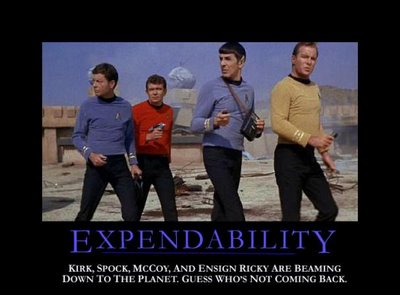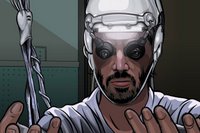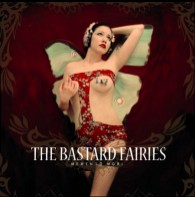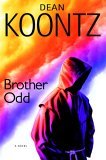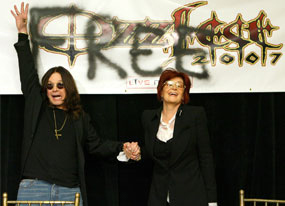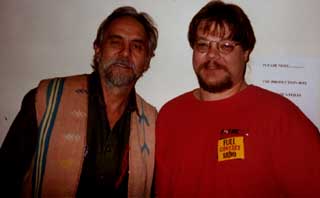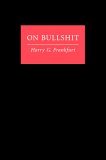Okay, for those of you that don't know I work in radio. You can always tell a radio person because they have thousands of photos of themselves with people (usually famous) that they'll never hang out with. Anyway 10 years ago I got the privilege of interviewing Tommy Chong. This was before his arrest for selling drug PARAPHANELIA (not drugs) across state lines and doing some prison time. I have transcribed that interview and well here it is. If it goes over well I may transcribe many of my other interviews (mainly w/ blues musicians, such as Son Seals, Koko Taylor, etc.).
Gil T. Wilson's Interview with Tommy chong
November 8, 1997
(brief but fun)
Gil T. Wilson: Here with me I have Tommy Chong, who has just played/performed at Stanford & Sons here in Kansas City, Playing/Performing, what would you call what you do?
Tommy Chong (as Blind Melon Chitlin): I be Playin', I be playin' guitar, this is Blind Melon Chitlin, Tommy Chong, Tommy Chong's done lef' the building. This is Blind Melon Chitlin, cause ya'll's playin' blues songs, this is a blues show. Ya'll like the blues. You, you yououou, know what the difference between Rock-n-Roll and de blues, don't you?
GTW: Well YOU tell me.
TC/BMC: Rock-n-Roll is what happens when white boys try to play the blues. You a white boy?
GTW: umm, yes.
TC/BMC: I figgered so. White boys love the blues.
GTW: You see though the best blues instrument I play is a CD player.
TC/BMC: If it weren't for white people there would be no blues.
GTW: How so?
TC/BMC: The white folk, they dug it up. The black people, they played it and then they left it. They left it and walked away to do the Hip-Hop. But the white people they love the blues. See the Rolling Stones they tried to play the blues and it come out like that. It came out like, you see that's Rock-n-Roll. That ain't the the blues.
You see if you ask me what the blues is I'll tell you what the blues is.
GTW: I'll bite, what is the blues?
TC/BMC: The blues is the blues, a yeah. If it were green it would be called the greens.
Wait a minute Tommy Chong, just walked in the door. A yeah. Hol' on. Hol' on.
TC: (as himself) Hey, How ya doin' man?
GTW: Pretty Good. (laughing)
TC: Sorry about that. He gets carried away. Just worked at Stanford's, I hope it was good. It was fun.
GTW: You started out doing Blues, right?
TC: Yeah, I think the very first tune, in fact the only tune I know all the way through is Honky Tonk by Bill Doggett. I know the Guitar Solo, I'm one of the few living guitarists that knows every note of that guitar solo. And I also know a lot of Jimmy Reed songs, he was my favorite. I love Jimmy Reed. I love Sonny Boy Williamson too. I've met a few people. I met John Lee Hooker years and years and years ago. When he was a younger, older man. (laughs) John Lee Hooker in this little blues club. There was NO ONE there. Just me and about three other guys.
GTW: Where was this?
TC: In Vancouver, Canada. That was when John Lee Hooker was playin' whatever gig he could get. You know?
I met B.B. King one time, He was funny. He came up and introduced himself to me. I just had to die laughing. He goes, " Mr. Chong, I'm B.B. King." I said, "Man I know who YOU are." (laughs)
GTW: With the blues starting you into where you are going, are you still doing blues with your performance now?
TC: Oh yeah, yeah. You know, that character that was on earlier (referring to Blind Melon) he's in my show. He's probably the feature act in my show. And I play guitar and sing funny songs. Funny blues songs you know. Like I sing about the dumbest man in the universe, a good old white boy named Michael Jackson.
So I sing about Michael, I sing about oh, a lot of things. I can't talk on the air about it, but uh, ..
GTW: One thing I was going to ask Blind Melon, was about the controversy over his album cover that was going to come out. Did they ever get that to fit on the album cover?
TC: Oh, Oh, we couldn't get it on the album cover. He don't care. See Blind's got tired of , He's got a manager 'cause he got tired of being messed around by the record company. They'd take him into record stores and they'd grab his hand and say, "Feel those? Those are ALL your records. Feel this poster this is your poster." And they'd be lyin', he knows they'd be lyin'.
GTW: On another note. On you, I saw an episode of Nash Bridges
TC: Ah HA.
GTW: And all this controversy going around, you and Cheech are supposed to be Mortal Enemies, aren't you.
TC: Well, we're, we're not mortal enemies, by no means, but uh, we definitely have a difference of opinion when it comes to , uh, you know our public personas. I think that if you're a comedian you should be funny. You know. I may be old-fashioned, but I think if you're gonna call yourself a comedian you should be funny. But Cheech is a serious actor now. I look at him like I look at all serious actors, like yeah, yeah, nice to meet ya. Don Johnson, you know is a big "Cheech & Chong" fan. And he would love nothing more to have us both on the show. But, you know, I can't do that Cop Stuff. I don't believe in it.
GTW: It's like you'd be on the other end?
TC: Well yeah, it's like you said I'm a Blues musician and smoking pot has never been a problem with me as far as the law goes. You know, evil is what you think it is. There's no good or bad, it's just what you think it is.
GTW: Well, blues music, itself, used to be seen as Evil.
TC: Yeah, exactly. You can always blame something on something else it's just a way to try to hold down a whole culture. But rather than give up they gotta, you know Cheech he makes his own decisions as far as what he wants to do with his life and he chose that path. And God Bless him.
GTW: And you're doing your movies, your last was "Far Out, Man", that's been a while when is your next one coming out?
TC: I just finished a movie called "Best Buds." And It'll be in the theatres hopefully, by spring. We'll try to come and do a premier in Kansas City, I've got quite a few friends here. Like this one guy who own's this club. (referring to the former Stanford & Sons comedy club) He's on the witness protection program, he knows a lot of the mob. He's really connected. They'll leave me alone here, you know I can work here without being hasseled. And if I was a teamster I'd be really well off here.
GTW: Thanks, Tommy, for taking the time off to talk with us. If you have a request, I'll see if I can play it for you.
TC: Okay, do you know that Muddy Waters thing where he sings, "Gimme my reefer I don't want umm Champagne but don't give me no cocaine.." something like that?
GTW: Okay, Here's Muddy Waters, Champagne & Reefer.
So should I transcribe the rest?
 The experiment continues. This statement goes for both the challenge Isaac Asimov presented to 4 sci-fi writers and to the experiment in the Robot City series of books of Robots and Humans working together. But before I jump too far let me give you a little more of a background.
The experiment continues. This statement goes for both the challenge Isaac Asimov presented to 4 sci-fi writers and to the experiment in the Robot City series of books of Robots and Humans working together. But before I jump too far let me give you a little more of a background.
